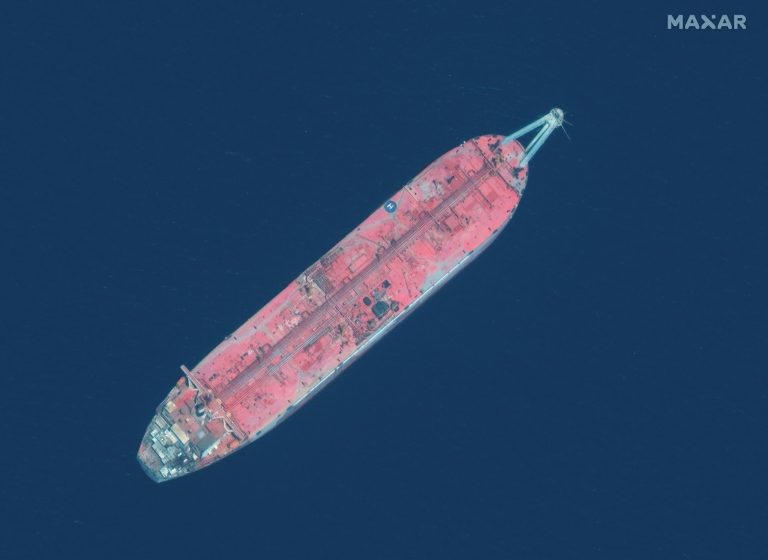Greenpeace urges Arab nations avert Yemen environmental disaster

A handout satellite image by Maxar Technologies on July 19, 2020, shows a close up view of the FSO Safer oil tanker off Yemen
Beirut – Greenpeace on Wednesday urged the Arab League to drum up funds to rescue a stranded, oil-filled tanker that is rusting off war-torn Yemen, threatening a major environmental disaster.
The environmental group said an urgent meeting was needed for the FSO Safer, after a UN pledging conference last month fell far short of its $80 million target.
The decaying 45-year-old tanker, long used as a floating storage platform and now abandoned off the rebel-held Yemeni port of Hodeida, holds 1.1 million barrels of oil and is in “imminent” danger of breaking up, the UN has warned.
Ghiwa Nakat, executive director at Greenpeace for the Middle East and North Africa, urged the Arab League’s secretary-general “to hold an urgent meeting and make concerted efforts to fund the plan to rescue the Safer before it is too late and before disaster strikes.”
Nakat said it was “deplorable that the Safer crisis has yet to be resolved due to the lack of financial support”.
The Safer contains four times the amount of oil that was spilled by the 1989 Exxon Valdez disaster, one of the world’s worst ecological catastrophes, according to the UN.
“It is high time to resolve the Safer crisis and make every possible effort to avert the disaster looming on the horizon, particularly since this crisis will affect Arab states first and foremost,” Nakat said.
“We trust that the (Arab League) is capable of playing this role and expediting the solution. If disaster strikes, its harsh consequences will affect us all, along with millions of people living in the region who will see their livelihoods, nutrition, health, and environment deteriorate.”
Environmentalists warn the cost of the funds needed to carry out the operation is a mere pittance compared to the estimated $20 billion it would cost to clean up a spill in the pristine waters of the Red Sea.
The UN has said an oil spill could destroy ecosystems, shut down the fishing industry and close Yemen’s lifeline Hodeida port for six months.
